Oppo Find X2 Pro
$1142 | 102000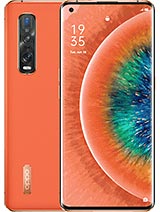
- 6.7" 1440x3168 pixels
- 48MP 2160p
- 12GB RAM Snapdragon 865
- 4260mAh Li-Po
Phone Finder
- Acer alcatel Allview Amazon Amoi Apple Archos Asus AT&T Benefon BenQ BenQ-Siemens Bird BlackBerry Blackview BLU Bosch BQ Casio Cat Celkon Chea Coolpad Cubot Dell Doogee Emporia Energizer Ericsson Eten Fairphone Fujitsu Siemens Garmin-Asus Gigabyte Gionee Google Haier HMD Honor HP HTC Huawei i-mate i-mobile Icemobile Infinix Innostream iNQ Intex itel Jolla Karbonn Kyocera Lava LeEco Lenovo LG Maxon Maxwest Meizu Micromax Microsoft Mitac Mitsubishi Modu Motorola MWg NEC Neonode NIU Nokia Nothing Nvidia O2 OnePlus Oppo Orange Oscal Oukitel Palm Panasonic Pantech Parla Philips Plum Posh Prestigio QMobile Qtek Razer Realme Sagem Samsung Sendo Sewon Sharp Siemens Sonim Sony Sony Ericsson Spice T-Mobile TCL Tecno Tel.Me. Telit Thuraya Toshiba Ulefone Umidigi Unnecto Vertu verykool vivo VK Mobile Vodafone Wiko WND XCute Xiaomi XOLO Yezz Yota YU ZTE
Oppo Find X2 Pro Summary
OPPO Find X was announced in July 2018 with a unique sliding design and many people had a high expectation for its successor, Find X2. After around one year and a half, OPPO finally announces new products in the series. However, instead of one, the brand released two models in the lineup, including OPPO Find X2 and Find X2 Pro. Ahead of the official launch, rumors suggested that the Find X2 Pro could be equipped with an under-display selfie camera, which hadn’t appeared on any other phones at the time or even now. However, that didn’t happen and the Find X2 Pro, despite being a stunning phone, wasn’t as unique as its predecessor Find X.
Not just that, the Find X2 Pro is also far more expensive than the Find X. Even for the vanilla model, OPPO sets pretty premium pricing. The Find X2’s starting price is around Rs. 76,000 while the Find X2 Pro is retailed at around Rs. 90,000. In comparison, the Galaxy S20 Ultra is priced at Rs. 97,999 while the iPhone 11 Pro Max is retailed at Rs. 109,900. Performance-wise, the OPPO Find X2 Pro should be on par with the iPhone 11 Pro Max thanks to the Snapdragon 865 SoC and more powerful than the Galaxy S20 Ultra (Indian version gets Exynos 990 SoC).
Display
The Find X2 Pro is equipped with a 6.7-inch AMOLED panel that supports QHD+ resolution, HDR10+, 120Hz refresh rate, and 800 nits max brightness. It is protected by a layer of Gorilla Glass 6 and covers 90.9% of the front panel. OPPO, instead of going for a unique design like a sliding camera, opts for the popular punch-hole style that also seems to be the favorite design of many phone makers recently. The hole is placed at the top left corner of the display and accommodates a single 32MP camera for selfies and video calls. The display is curved on both sides and that is really up to your liking on whether it is good or bad. Just like other phones in its price range, the handset is equipped with an under-display fingerprint reader for biometric security.
As for display quality, it is at the top of the league with a 120Hz refresh rate, fantastic colour accuracy, and white balance. The screen supports HDR10+, meaning it is able to render more colour and the brand claims that it can hit a peak brightness of 1200 nits. With that, you can easily see the display in direct sunlight. The Snapdragon 865 SoC allows the smartphone to run at 120Hz refresh rate even at Quad-HD+ resolution. That is something that Galaxy S20 series is unable to do, at least for now. Both phones are capable of doing so, but it seems like Samsung only allows users to use 120Hz mode at FHD+ resolution, most likely for battery life reasons. Overall, the OPPO Find X2 Pro’s display quality is top-notch and you can’t find a better one on the market.
Performance
Moving to the performance aspect, the OPPO Find X2 Pro is powered by the top-end Snapdragon 865 octa-core chipset, alongside Adreno 650 GPU. The vanilla Find X2 also has the same chipset, except for the memory configuration. The vanilla model is available in three models, including 8GB RAM + 128GB storage, 8GB RAM + 256GB storage, and 12GB RAM + 256GB storage. The Pro version, meanwhile, comes in only 12GB RAM + 256GB storage and 12GB RAM + 256GB storage. As for Snapdragon 865, it is currently the most powerful chipset by Qualcomm at the moment and arguably in the mobile industry.
RAM & Storage
As mentioned, the Find X2 is available in either 8GB or 12GB RAM models while the Find X2 Pro only comes in 12GB RAM options. With 12GB of RAM, you won’t have to worry about running out of memory. Even regular PC only needs 8GB for most of the daily tasks. With the Snapdragon 865 and 12GB RAM, you will have a flawless experience and see no lag, stutter, or anything like that. It is also capable of running demanding games at high graphics settings.
Battery
Under the hood, OPPO packs a 4,200 mAh battery on the Find X2 and a 4,260 mAh one on the Find X2 Pro, so there is very little difference in battery capacity between the two models. The battery life of the Find X2 Pro might not be the longest in the mobile industry, but it certainly shines with the 65W fast charging technology, which is said to fully charge the phone from 0 to 100 percent in just 38 minutes. Despite not having the beefiest battery in the world, the Find X2 Pro will surely deliver a long battery life and last at least one day with moderate usage. One downside of this phone is its lack of wireless charging. I was quite confused when I first knew that this phone doesn’t support wireless charging despite its hefty price tag.
Camera
Moving to the camera aspect, this is where the Find X2 & X2 Pro differ most. On the front, both of them feature the same 32MP shooter with an f/2.4 lens for selfies and video calls, housed inside the punch-hole. Around the back, the OPPO Find X2 Pro’s triple camera setup includes a 48MP main sensor with PDAF, Laser AF, and OIS. The other two units on the setup are a 13MP periscope telephoto lens with PDAF, Laser AF, and OIS as well as a 48MP ultra-wide camera (Find X2 only has a 12MP unit). The main camera supports omnidirectional PDAF, which allows faster focusing, better low-light performance as well as enables the sensor to focus on smaller objects or finer details. In comparison, the Find X2 also gets three cameras at the back with a 48MP main sensor, but only paired with a 13MP telephoto lens and a 12MP wide-angle camera. Moreover, it doesn’t support omnidirectional PDAF. In comparison to its rivals, the OPPO Find X2 Pro has a versatile camera setup for capturing photos and recording videos in daylight, but its performance in low-light conditions is not as good.
Oppo Find X2 Pro Full Specifications
- Dollas $1142
- Rupee ₹102000
- Technology GSM / HSPA / LTE / 5G
- 2G bands GSM 850 / 900 / 1800 / 1900 - SIM 1 & SIM 2
- 3G bands HSDPA 800 / 850 / 900 / 1700(AWS) / 1900 / 2100
- 4G bands 1, 2, 3, 4, 5, 7, 8, 12, 13, 17, 18, 19, 20, 25, 26, 28, 29, 32, 34, 38, 39, 40, 41, 42, 66
- 5G bands 1, 3, 5, 7, 28, 40, 41, 77, 78, 79 SA/NSA
- Speed HSPA 42.2/5.76 Mbps, LTE-A, 5G
- Announced 2020, March 6
- Status Available. Released 2020, March 6
- Dimensions 165.2 x 74.4 x 8.8 mm (Ceramic) / 9.5mm (Leather)
- Weight 217 g (Ceramic) / 200 g (Leather) (7.05 oz)
- Build Glass front (Gorilla Glass 6), cerramic back or leather back, aluminum frame
- SIM Dual SIM (Nano-SIM, dual stand-by)
- IP68 dust/water resistant (up to 1.5m for 30 mins)
- Type AMOLED capacitive touchscreen, 1B colors
- Size 6.7 inches, 111.7 cm2 (~90.9% screen-to-body ratio)
- Resolution 1440 x 3168 pixels (~513 ppi density)
- Protection Corning Gorilla Glass 6
- HDR10+ 120Hz refresh rate 800 nits max brightness (advertised)
- OS Android 10.0; ColorOS 7.1
- Chipset Qualcomm SM8250 Snapdragon 865 (7 nm+)
- CPU Octa-core (1x2.84 GHz Kryo 585 & 3x2.42 GHz Kryo 585 & 4x1.8 GHz Kryo 585)
- GPU Adreno 650
- Card slot No
- Internal 256GB 12GB RAM, 512GB 12GB RAM
- UFS 3.0
- Modules 48 MP, f/1.7, 25mm (wide), 1/1.43", 1.12µm, omnidirectional PDAF, Laser AF, OIS Periscope 13 MP, f/3.0, 129mm (telephoto), 1/3.4", 1.0µm, 5x optical zoom, PDAF, Laser AF, OIS 48 MP, f/2.2, 17mm (ultrawide), 1/2.0", 0.8µm, AF
- Features Dual-LED dual-tone flash, HDR, panorama
- Video 2160p@30/60fps, 1080p@30/60fps; gyro-EIS; HDR
- Modules 32 MP, f/2.4, (wide), 1/2.8", 0.8µm
- Features HDR
- Video 1080p@30fps
- Loudspeaker Yes, with stereo speakers
- 3.5mm jack No
- WLAN Wi-Fi 802.11 a/b/g/n/ac/ax, dual-band, Wi-Fi Direct, hotspot
- Bluetooth 5.1, A2DP, LE
- GPS Yes, with dual-band A-GPS, GLONASS, BDS, GALILEO
- NFC Yes
- Radio No
- USB 3.1, Type-C 1.0 reversible connector, USB On-The-Go
- Sensors Fingerprint (under display, optical), accelerometer, gyro, proximity, compass
- Non-removable Li-Po 4260 mAh battery
- Charging Fast charging 65W, 100% in 38 min (advertised) SuperVOOC 2.0 USB Power Delivery
- Colors Black (Ceramic), Orange (Leather), Gray (Leather), Lamborghini Edition
- Models CPH2025
- Performance AnTuTu: 593717 (v8) GeekBench: 13245 (v4.4), 3269 (v5.1) GFXBench: 25fps (ES 3.1 onscreen)
- Display Contrast ratio: Infinite (nominal)
- Camera Photo
- Loudspeaker -25.2 LUFS (Very good)
- Battery life Endurance rating 88h
Oppo Find X2 Pro News
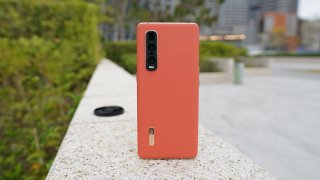
Mobile - Mar 06, 2021
OPPO Find X2 Pro Price in India, Specifications, Review - All You Need
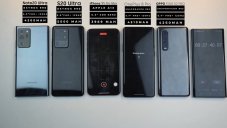
Mobile - Sep 05, 2020
iPhone 11 Pro Max With Smallest Battery Surprisingly Beats Top Four Android...
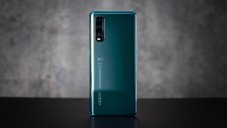
Mobile - Jun 19, 2020
OPPO Find X2 & Find X2 Pro Launched in India, Price Starts At Rs. 64,990

Mobile - Jun 08, 2020
OPPO Find X2 & Find X2 Pro Confirmed To Launch In India Very Soon
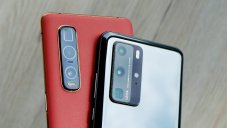
Mobile - Apr 06, 2020








